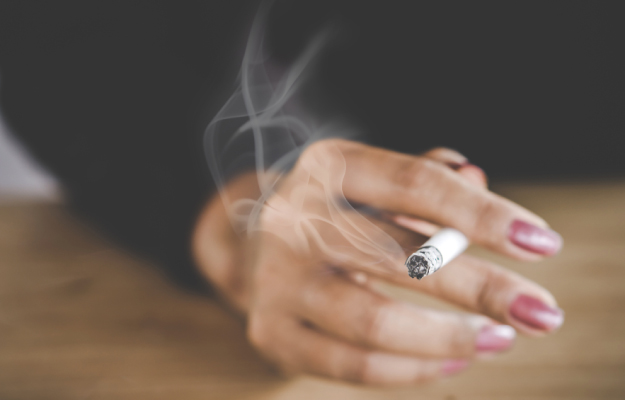So you’re chilling on a Friday night when all your work has been settled.
Then, just out of the blue, you start feeling a surge of heat from inside your body that makes you feel like you’re going to be soaked in your own sweat.
That’s a hot flash. And that will ruin your well-deserved break from everyday life.
Meanwhile, a recent study has found that women over 50 nowadays are more likely to experience menopause hot flashes than women of the same age from earlier generations.
How so? Read on to find out.
RELATED: What Causes Hot Flashes? Symptoms & Treatments Discussed
Women Experience More Hot Flashes Than in the Past
What Are Menopause Hot Flashes?
Hot flashes are generally described as a sudden sensation of warmth primarily in the upper body, including the face, neck, and chest. These events usually occur with sweating and a faster heartbeat.
Women during menopause tend to feel annoyed by hot flashes. Still, the symptoms may quickly go away after a couple of minutes.
However, the more painful problem with menopause hot flashes is that they are repetitive. They may come and go away swiftly. But, most of the time, they will come back again and get on your nerves!
This is why most women during menopause are in the same boat after realizing that their hot flashes will linger for months and years.
If you’re suffering from persistent hot flashes, know you’re not alone. Hot flashes affect more than two-thirds of North American women approaching menopause. Furthermore, these events are the most common menopausal and perimenopausal symptoms.
Other symptoms of menopause hot flashes include:
- Sleep disturbance and mood swings
- Red skin or flush with increased heat
- Chills after hot flashes go away
- Anxiety due to repeated hot flashes
What Causes Hot Flashes During Menopause?
Estrogen Deficiency
We all know what menopause does, and it does more harm than good.
Before this period, every hormone in your body starts to decline, resulting in hormonal imbalance and troublesome symptoms. And, by the time you’ve reached menopause, nearly half of your estrogen, the sex hormone that shapes your femininity, will have been gone.
As a result, it’s been believed that estrogen decline is one of the causes of menopause hot flashes. This hypothesis is consistent with the fact that menopausal women with higher estrogen levels experience less severity and frequency of hot flashes.
However, blaming hot flashes on estrogen deficiency alone may not be enough. Research has found that menopausal women with or without hot flashes may have the same estrogen levels. Further, young girls have lower estrogen levels before puberty but don’t experience hot flashes.
Disrupted Thermoregulation
It turns out that the culprit behind menopause hot flashes is more complex than we think.
Research shows menopausal women with hot flashes also have a condition associated with the central nervous system that alters their response to body heat.
This condition – known as “narrowed thermoneutral zone” – disrupts women’s ability to regulate their core body temperature, causing them to sweat more quickly than usual. Sweating is the subsequent reaction that dissipates heat and cools the body down as the body thinks it’s getting hotter.
The hypothalamus – an area in the brain that controls hormones and heat regulation – is thought to be affected and causes hot flashes. In menopausal women, the hypothalamus changes, including increased levels of a neurotransmitter called norepinephrine. This narrows the width of the thermoneutral zone.
Moreover, women’s ability to tolerate colds is also affected by such changes in the brain, causing them to feel chilled after a hot flash goes away.
RELATED: 10 Symptoms of Low Estrogen in Women
Hot Flashes Are Twice as Prevalent in Later-born Women
50-year-old Women Today Have More Hot Flashes
So experiencing hot flashes has become a source of annoyance among menopausal women. They suddenly burst, making women want to peel off their clothes and sink into a cold bath. And unfortunately, they happen to almost all women.
Or do they?
A recent study on women born in different decades shows that women over 50 today are more likely to experience more frequent menopause hot flashes than those born in the 1920s and 30s.
Specifically, the study examines 50-year-old women born in 1918, 1930 (earlier-born group), 1954, and 1966 (later-born group). Participants are required to complete a questionnaire about the frequency of their hot flashes.
The results show that later-born women have nearly twice the tendency to report daily hot flashes as earlier-born women. No wonder menopause hot flashes have never become a real thing that women take seriously until recently.
But why’s that?
Smoking, Stress, Body Weight, and Hot Flashes
 Scientists hypothesize that some potential factors that cause hot flashes to occur more frequently may include smoking, stress, and body weight.
Scientists hypothesize that some potential factors that cause hot flashes to occur more frequently may include smoking, stress, and body weight.
This assumption makes sense, as women are advised to have a healthy lifestyle to alleviate the impact of hot flashes, including giving up on smoking and maintaining a fit body.
And, of course, stress and anxiety exacerbate menopause.
In fact, menopause and anxiety have long had a close relationship. For this reason, menopause hot flashes may be driven by an interconnection of multiple factors.
However, the study cannot conclude why hot flashes have become more prevalent. Moreover, smoking is not to blame entirely, as later-born women smoke less frequently than earlier-born ones (17% vs. 39%).
On this account, further studies are necessary. In addition, scientists must also consider potential environmental and societal risk factors over time, such as the impacts of endocrine-disrupting chemicals, changes in lifestyle, diet, and working conditions.
RELATED: Women Who Are Turning 40 Should Expect These 10 Body Changes
Relief From Menopause Hot Flashes
Lifestyle Changes
 Before considering any medical treatment for your worrisome condition, try making changes in your lifestyle to see if they help your hot flashes.
Before considering any medical treatment for your worrisome condition, try making changes in your lifestyle to see if they help your hot flashes.
Everything from drinking water before bed to maintaining a healthy weight can be beneficial. Here are a few ideas:
- Lower the room temperature
- Drink small amounts of cold water before going to bed
- Dress in layers so that you can take them off if a hot flash occurs
- Bring a portable fan with you when going outside
- Avoid alcohol, spicy foods, and caffeine
- Give up smoking
- Maintain a healthy weight
Hormone Therapy
Hormone therapy is a treatment option for alleviating the effects of menopause, hence has been shown to reduce the severity and frequency of hot flashes effectively.
This approach aims to optimize estrogen levels in the female body, allowing the hormone and the brain area that regulates body temperature to function normally.
Remember that hormone therapy for treating hot flashes should only be given by a specialized healthcare provider. It is because hormone therapy may come at an expense, as it may cause some undesirable side effects. Additionally, hormone therapy in injections and pellets is more effective and safer than oral hormones or patches.
Non-hormonal Treatments
Some women may not opt for hormonal treatment due to various reasons. For example, some may not qualify for the treatment; others are concerned about the side effects of hormone therapy.
If that’s the case for you, consider taking non-hormonal treatments. These medications improve hot flashes by lowering norepinephrine and widening the thermoneutral zone.
A study found that a non-hormonal pharmaceutical called clonidine can reduce hot flash frequency by up to 80%.
Some other non-hormonal medications include:
- Fluoxetine
- Venlafaxine
- Escitalopram
- Gabapentin
- Isoflavone
RELATED: The Impact of Hormone Replacement Therapy on Menopause Symptoms
Bottom Line: Struggling With Hot Flashes? What to Do Next
Getting in trouble due to menopause hot flashes is not uncommon among women, especially those over the age of 50. The goal is to raise the awareness that your body is not doing well and you need to overcome it.
Given that the prevalence of hot flashes is becoming more noticeable, the need for an effective treatment for menopause and its symptoms is urgent. Hormone therapy is one of the most efficient procedures to keep your hot flashes away.
Stop struggling with those surges of heat that trouble your well-being. Instead, seek treatment, consult your doctor, and regain your healthy self!
Yunique Medical provides FUNCTIONAL MEDICINE for optimized health and performance. We offer customized, scientifically advanced treatments to create a new state of human thriving. Why be ordinary when you can be optimal?
HUMAN 2.0 begins here!
Contact us to schedule your FREE consultation at one of our three locations in Florida – Ocala, Fruitland Park (The Villages), and Daytona.
UP NEXT:

